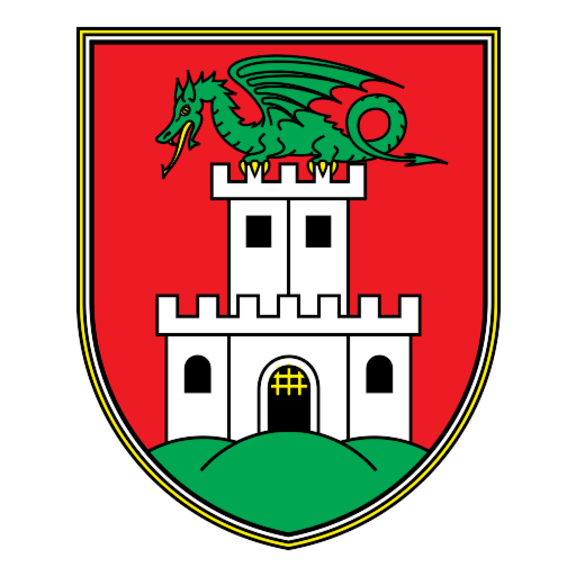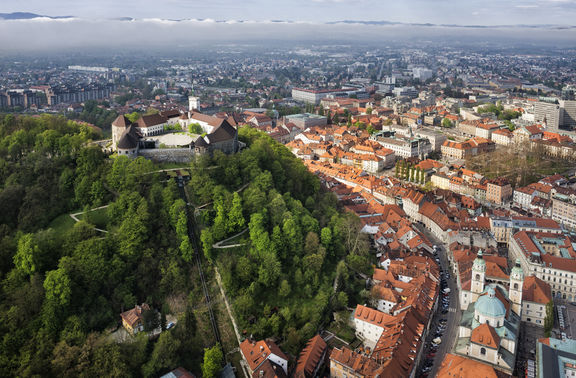Municipality of Ljubljana
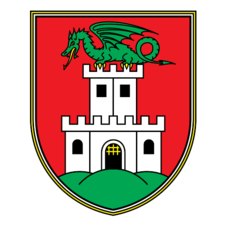
-
23 May 2024
HungaryBudapestBethlen Téri TheaterMonotánc Fesztivál"SHE - ONA", a vocal-dance solo performance by Anamaria Klajnšček, produced by Flota Institute and Emanat Institute and coproduced by Dance Theatre Ljubljana. Supported by Ministry of Culture and Municipality of Ljubljana.
-
12 May 2024
PolandKrakowCricoteka Centre for Documentation of The Art of Tadeusz KantorRollercoasterA performance of "Superfluous - Odvečni", based on the famous essay by Ilija Trojanow and conceptualised by EnKnapGroup (EKG). Supported by Ministry of Culture and Department of Culture of Municipality of Ljubljana.
-
to
2 May 2024
3 May 2024
PortugalBragaCentro de Juventude de Braga, Sá de Miranda SchoolRESISTANCE! Youth Festival of Modern European HistoryTwo performances of "You Are What You Eat - Si to, kar ješ", a show about rebellions in the context of former Yugoslavia. Produced by Glej Theatre. Supported by European Union, Public Fund for Cultural Activities of the Republic of Slovenia, and Department of Culture of Municipality of Ljubljana.
-
20 Apr 2024
CroatiaZagrebZagrebački Dance Center"Superfluous - Odvečni", an original dance performance by EnKnapGroup (EKG) with an international cast. Supported by Ministry of Culture and Municipality of Ljubljana.
- SCENE – Significant European Cemeteries Network, 2003
Project summary - Art.Ce.Mo: Artigianato dell’Arte Ceramica Moderna, 2002
Project summary Show more
Funding of culture
The Board for Cultural Activities of the City Council is responsible for municipal funding of arts and culture and other activities in the field. Annually the Župančič Award is bestowed to the outstanding creators in the field of arts and culture.
The Department of Culture of Municipality of Ljubljana functions as a governance and professional body in charge of public cultural institutions (11 municipal cultural institutions) and non-profit cultural organisations in the municipality, seeking to provide a creative environment for cultural associations, groups and individuals in the field of art and culture and to stimulate amateur cultural activity. The Department is also responsible for cultural heritage, local monuments and infrastructure.
A tender for co-financing of cultural programmes and projects is issued annually (usually at the end of the year). Other bids for various initiatives are issued throughout the year.
Municipal cultural institutions
Out of 29 public cultural institutions located in the city, 11 of them have been founded by the Municipality of Ljubljana. The Ljubljana City Library consists of 6 libraries and their branches round the city, the 3 theatre houses include the Ljubljana City Theatre (MGL), Mladinsko Theatre and Ljubljana Puppet Theatre), the major event organisers are Festival Ljubljana Public Institute originating from 1952 and the newly established Ljubljanski grad Public Institute, while a centre for children's and youth creativity since 1963 is Pionirski dom Youth Culture Centre. The visual arts and heritage municipal institutions are the International Centre of Graphic Arts, Ljubljana and the Museum and Galleries of Ljubljana that manages also the Plečnik House. Recently (re)established institutions are Kinodvor Cinema, Kino Šiška Centre for Urban Culture and the Španski borci Culture Centre, a significant contemporary dance facility.
International projects and networking
The Municipality of Ljubljana has signed a number of inter-municipal agreements with other cities of the world: in 1964 with Pesaro and Parma (Italy), in 1966 with Chemnitz (Germany), in 1967 with Bratislava (Slovakia), in 1969 with Sousse (Tunisia), in 1977 with Wiesbaden (Germany) and Tbilisi (Georgia), in 1979 with Leverkusen (Germany) and Rijeka (Croatia), in 1981 with Chengdu (China), in 1999 with Vienna (Austria) in 2000 with Athens (Greece) and Moscow (Russia), in 2001 with Zagreb (Croatia), in 2002 with Sarajevo (Bosnia and Herzegovina), in 2004 with Brussels (Belgium), in 2007 with Skopje (Macedonia), 2010 with Belgrade (Serbia), 2013 with Baku (Azerbaijan), 2014 with Fujairah (United Arab Emirates) and in 2015 with Ankara (Turkey).
The first project for which the Municipality of Ljubljana received funding by the European Commission was the SCENE project by partners from Bologna, Ljubljana, Stockholm and Vilnius, members of the Association of Significant Cemeteries in Europe (ASCE). The project funded the first phase of renovation of the Žale ossuary (a memorial of the international victims of the IWW, a modernist building by Edvard Ravnikar. A Guidebook to European Cemeteries was published and Ljubljana took part in the first festival dedicated to European cemeteries in 2004.
Since 1999 the Municipality of Ljubljana and Urban Planning Institute of the Republic of Slovenia have collaborated in a network of 23 European cities that joined in the Réseau Art Nouveau Network (RANN) in order to encourage research, popularization and protection of Art Nouveau (Secession) heritage. In 2006 two international seminars – National Identity and International Trends and Tourism and Art Nouveau – were organised in Ljubljana, while in 2008 the exhibition Art Nouveau & Society at the National Gallery of Slovenia presented the pan-European movement for the modernisation of art.
From April 2010 till April 2011 Ljubljana acted as the UNESCO World's Book Capital, which concluded with the adoption of the Ljubljana Resolution on Books, a document that "stresses the importance of books as key vehicles of human development, cultural pluralism and sustainable diversity". During that year books and reading were the central theme of events across Slovenia, the city gained a new Trubar Literature House, the arts and culture printed fortnightly, the Pogledi Newspaper was launched.
Ljubljana has pursued the active involvement with literature and obtained the permanent UNESCO title of the City of Literature in the UNESCO Creative Cities Network in December 2015.
In April 2011 Ljubljana became a city of refuge, a member of the International Cities of Refuge Network (ICORN) of more than 50 cities that offer residency to politically exiled writers and artists. So far Ljubljana has hosted Zineb El Rhazoui, Ali Amar (both from Morocco), and Girma T. Fantaye (Ethiopia). In May 2014 the Municipality of Ljubljana hosted the ICORN Network General Assembly.
Urban public space solutions
In 2010 Municipality of Ljubljana joined the European project Second Chance in which it takes the transformation of the former Rog factory as a case study, compared to Nuerenberg (former AEG factory), Leipzig (HALLE 14 of the former Cotton Spinning Mill), Venice (the Arsenale), and Krakow (the tram depot in the St. Lawrence district).
Ljubljana has won the 2012 European Prize for Urban Public Space for the renovation of the banks of the Ljubljanica River in the old city center, sharing the top prize with Barcelona’s landscaping of Turo de Rovira. In June 2014 Ljubljana was named European Green Capital 2016.
See also
- Ljubljana City of Refuge (ICORN)
- World Book Capital Ljubljana 2010
- Municipal cultural institutions
- Cultural centres / venues
- Kresija Gallery
- Magistrat Gallery
- Župančič Award of the City of Ljubljana
- The list of cultural organisations located in Ljubljana
- List of urban municipalities
External links
- Municipality of Ljubljana website
- Department for Culture web page
- Ljubljana on Wikipedia
- Visit Ljubljana - website by Ljubljana Tourist Board
- Ljubljana photos on Kraji.eu
International projects
- Ljubljana ECoC 2025 Programme
- Ljubljana presentation on the City of Literature website
- Ljubljana – European Green Capital 2016
- A list of international (city) networks
- Ljubljana on the Artnouveau-net website
- Žale Cemetery on ASCE website
- SCENE project
- Second Chance project website
- Info on the EU Prize for the Renovation of the banks of the River Ljubljanica
Texts and studies on Ljubljana
- Ljubljana: Nature-based Solutions (NBS) for Urban Regeneration and Wellbeing on the Oppla.eu portal
- Ljubljana from revitalisation to gentrification, a text on Blog.urbact.eu by Aidan Cerar, Institute for Spatial Policies
Guides & curiosities
- Ljubljana on The New York Times website
- Sounding Out in Ljubljana by Igor Bašin on Songlines Magazines
- Where not to park in Ljubljana (December 2010)
- Time lapse - A day in Ljubljana, a short promo with half a million pictures
Historical visits
- [http://en.wikipedia.org/wiki/Ljubljana_railway_station Memorial plaque to James Joyce
Gallery
- Municipal funding
- Funding
- Municipalities
- Urban municipalities
- World Book Capital Ljubljana 2010
- European Capital of Culture 2025 in Slovenia
- EU funding of Slovene organisations (Culture and MEDIA Programmes)
- EU Culture funding recipient
- Architecture funding, professional and support services
- Dance funding, professional and support services
- Funding, professional and support services
- Literature funding, professional and support services
- Museum funding, professional and support services
- Music funding, professional and support services
- New media art funding, professional and support services
- Theatre funding, professional and support services


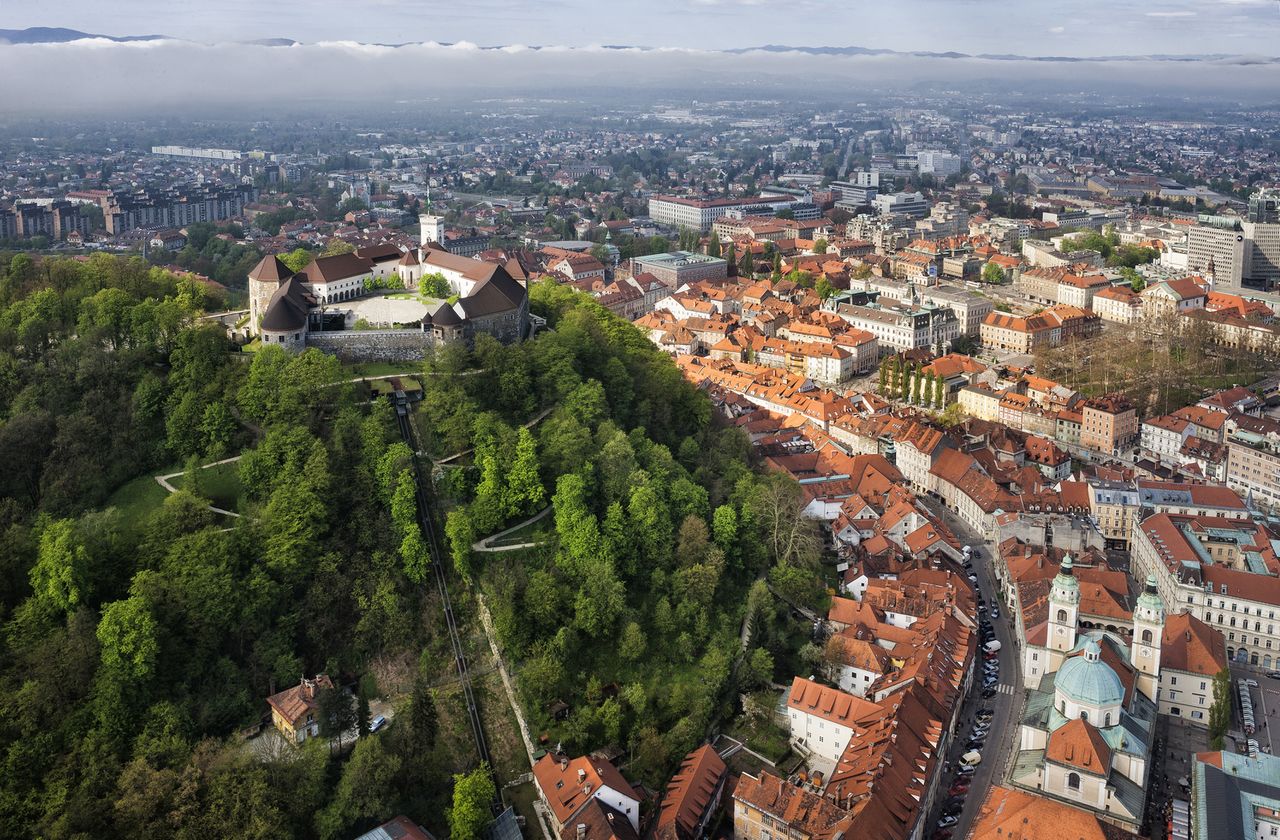

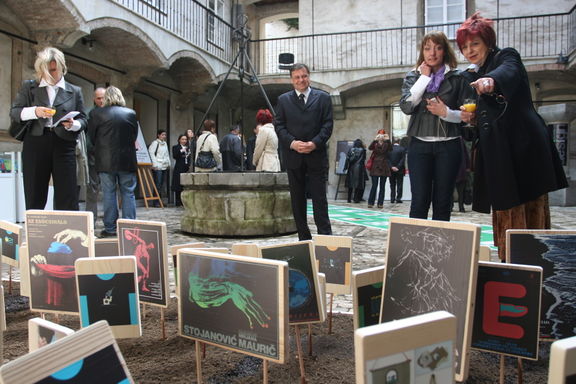
![Ljubljana Castle and Slovene Philharmonic, shot from the recently renewed Congress Square [Kongresni trg], 2012](/images/thumb/2/25/Ljubljana_Castle_2012_distant_view.jpg/576px-Ljubljana_Castle_2012_distant_view.jpg)
